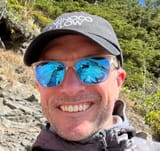Scouting 101: Keys to finding great fly fishing spots
Scouting fly fishing spots can be a major challenge for beginners. It depends on combing through lots of sources of information to find places where you might find great water, then verifying those hunches in real life.

Scouting fly-fishing spots is a challenge for beginners. It depends on combing through lots of sources of information to find places where you might find great water, then verifying those hunches in real life. And time is precious, as a beginner. You want to spend your learning time in a position to catch fish.
Scouting starts with a fundamental truth, however:
People are jealous and guarded about their fly fishing spots.
One of my fishing mentors told me a story of the only time he ever saw his fishing partner really get angry.
He climbed into her car and picked up her well-worn Michigan Gazetteer map book and started to thumb through it, before realizing it had her trout, deer, and mushroom areas marked. They didn't talk for a week afterwards.
As a beginner, one of the hardest things to do is to find new places to fish. Great fly fishing spots are hard-earned. You can devote several different levels of effort to the pursuit. As you gain experience, some of the lower levels will become second nature.
Levels of effort for finding new places to fish
Here's a little table to illustrate my point:
| Level | Activity |
|---|---|
| 1 | copying others |
| roadside peeping | |
| campsite water | |
| 2 | fly shop info |
| books and forums | |
| map research | |
| 3 | gifted spots |
| hiking (<1 mi.) | |
| 4 | aerial / overflight |
| hiking (>1 mi.) |
The formula here is pretty simple, and works for most places around the world:
The further you get from human traffic, the more fish you'll find.
This counts wherever you might be. This is why even the most fishy-seeming places still sometimes require some travel above-and-beyond:
- Helicopters for steelhead in British Columbia
- Bush planes for salmon in Alaska
- Mule train up Soda Butte in Yellowstone
- Seven-mile backcountry hikes in New Zealand.
If the first rule is "fish where the fish are," the second rule is "the further from humans, the more fish."
But I don't want to bushwhack to find fish. I want to learn!
Which is perfectly fair.
To advance quickly up the learning curve, if you're not situated near an inherently fishy place, it could be worth focusing on warmwater species, to maximize time spent working on your cast, and knots, and general sensibilities.
Lots of fly anglers have moved to fish lakes, or smallmouth bass, to find sporting opportunities in a more accessible package.
Or, they're retired, or have flexible schedules that let them fish on weekdays, when the nine-to-five crowd isn't around, and those level 1 or 2 spots aren't crowded, and the fish are maybe a little less spooky.
When we want to fish in specific zones, though, like the Madison, or the Mount Hood area, we have to contend with the idea that lots of other people fish those areas too, and there's a lot of pressure on the fish.
Finding specific (and adjacent) resources
Some good sources of info typically include:
- Specialist fly-fishing media
- Websites and forums
- Fly shop email newsletters
- Fly fishing books in fishing travel / tourism oriented areas
- Non-specialist outdoors media
- Conservation / wilderness surveying
- Hiking guidebooks
- Camping guidebooks
- Mapping apps and software
- On X
- Google Earth / Maps
- Talking to people
- Fly shops
- Clubs
- Other anglers
- Watching to see
- Cars stopped by the side of the road
- Fishing stickers?
- Fancy rooftop rod holder?
- Cars stopped by the side of the road
Three aspects of good fishing spot data
1️⃣ Fidelity
How vivid are the data? Maps are really important. But can you read them properly, and with precision?
2️⃣ Reliability
All anglers are liars. That quarter-mile hike for two-foot browns may have been more like an eight-mile schlep for 12" fish.
3️⃣ Recency
How recent are the data? Ecosystems change fast. Gates can be locked at any time.
Have a couple different possible plans in mind. That way, if your data is bad (and the gate is locked) you have some alternate options
What are some of your scouting techniques? How have you found success? Share it in the comments.
𓆟 𓆝 𓆟




